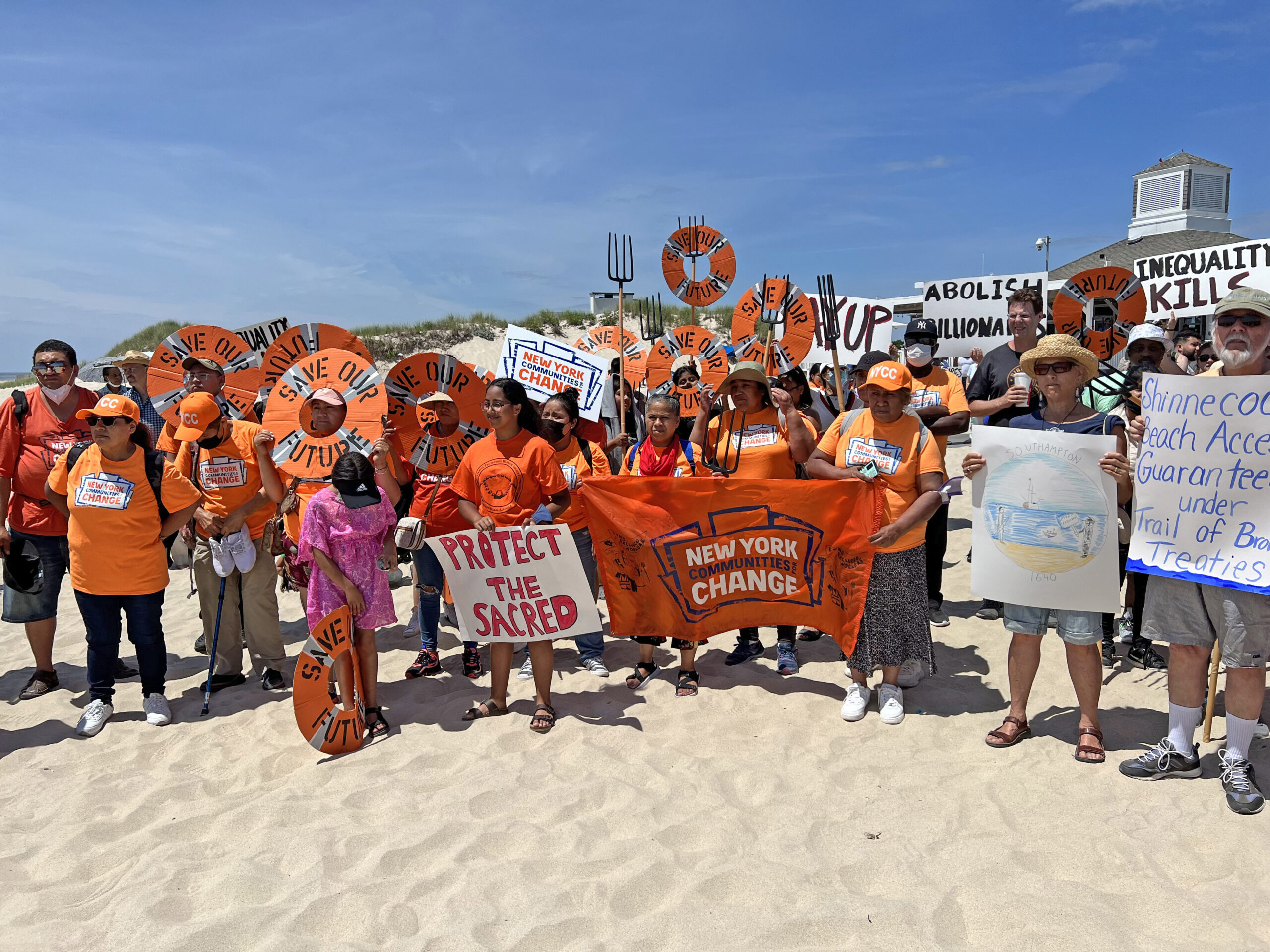
Not much progress has been made on the effort of the Shinnecock Nation to secure free access to Southampton Village beaches, but this week Mayor Jesse Warren and Shinnecock Nation Chairman Bryan Polite said they were hopeful that a joint meeting of the tribal trustees and Village Board could be arranged as early as September to allow both sides to discuss beach access and other issues.
“There is no way to solve a problem that has existed for centuries in one meeting or in one day,” Warren said of his desire to open a dialogue between the two governments.
Warren said he envisioned “a joint executive session between our board and the Shinnecock Nation,” but if that would not be allowed and there was not support for a fully open meeting, he said he would like to see a committee made up of representatives from both sides meet to establish some kind of rapport between the two governments.
The state’s Open Meetings Law limits closed executive sessions to discussions of certain specific matters, like personnel decisions, contract negotiations and litigation, so it is doubtful the Village Board would be able to host or attend a closed session, even if the state rules would not apply to the tribe.
Polite said he had already held preliminary discussions with village officials about a possible joint meeting sometime in September after the annual Powwow, which takes place over Labor Day weekend.
Polite said no details had been discussed, but he said he would be amenable to a meeting open to the public, although he added such a meeting would likely be more fruitful if it did not take on the form of a public forum but was limited instead to participation by members of the two boards.
Neither official could remember when the last time the two groups had met, if ever, although Polite said former Mayor Mark Epley had tried to find some “middle ground” with the tribe.
For now, Polite said he had not had time to give the idea much thought. “My council is caught up in Powwow frenzy,” he said. The tribe’s annual Powwow will be open to the public for the first time since 2019 this year.
The move comes after advocates, led by tribal attorney Tela Troge, tried to convince the village to give free beach access to members of the Shinnecock Nation based on a 17th century treaty in which the nation turned over land to the English settlers but was guaranteed the right to use the beach in perpetuity.
Beach passes are free for village residents, but the Shinnecock Territory is not within the village boundaries. Nonresident seasonal passes cost $500, but residents of the Southampton Fire District, who don’t live in the village, can buy seasonal passes for $250. A daily nonresident pass costs $50.
Earlier this month, Warren said he worked out a deal in which an anonymous nonprofit would pay for 100 day passes to Coopers Beach to be reserved for members of the Shinnecock Nation — but Troge said the offer fell short of the mark.
“I wanted to try to do something positive and constructive,” Warren said this week. “While our board wasn’t willing to take any steps, I did take matters into my own hands and reached out to a nonprofit organization, and we were able to deliver 100 free passes to Coopers Beach.
“I hope members of the Shinnecock Nation will take up my offer to use the passes and enjoy one of the best beaches in the country,” Warren continued.
But Troge said initially the mayor only offered 25 passes. “What happens to the family in the 26th car after they pack up the kids and head to the beach?” she asked.
She added that she had begun to ask the village to consider an open beach policy for tribe members in March, and to receive 100 day passes in August was simply “a temporary Band-Aid to a much bigger problem.”
Although Polite agreed that 100 day passes would not solve the problem, he said, “You have to acknowledge the hard work of the mayor. He tried to alleviate a problem that predates his time in office.”
Troge said she believes racial discrimination is at the heart of the problem. “Why is it such a horrible thing when tribal members want to go to the beach?” she asked. “We have to look at this situation through a more equitable lens. Do we want to continue this legacy of segregation, or do we want all people to be able to go to the beach with their families and enjoy the day?”
She said she was happy the Village Board and Tribal Council were considering a meeting. “I can do what I can do as an advocate,” she said. “But ultimately, the village’s government needs to work for a solution with the nation’s government.”